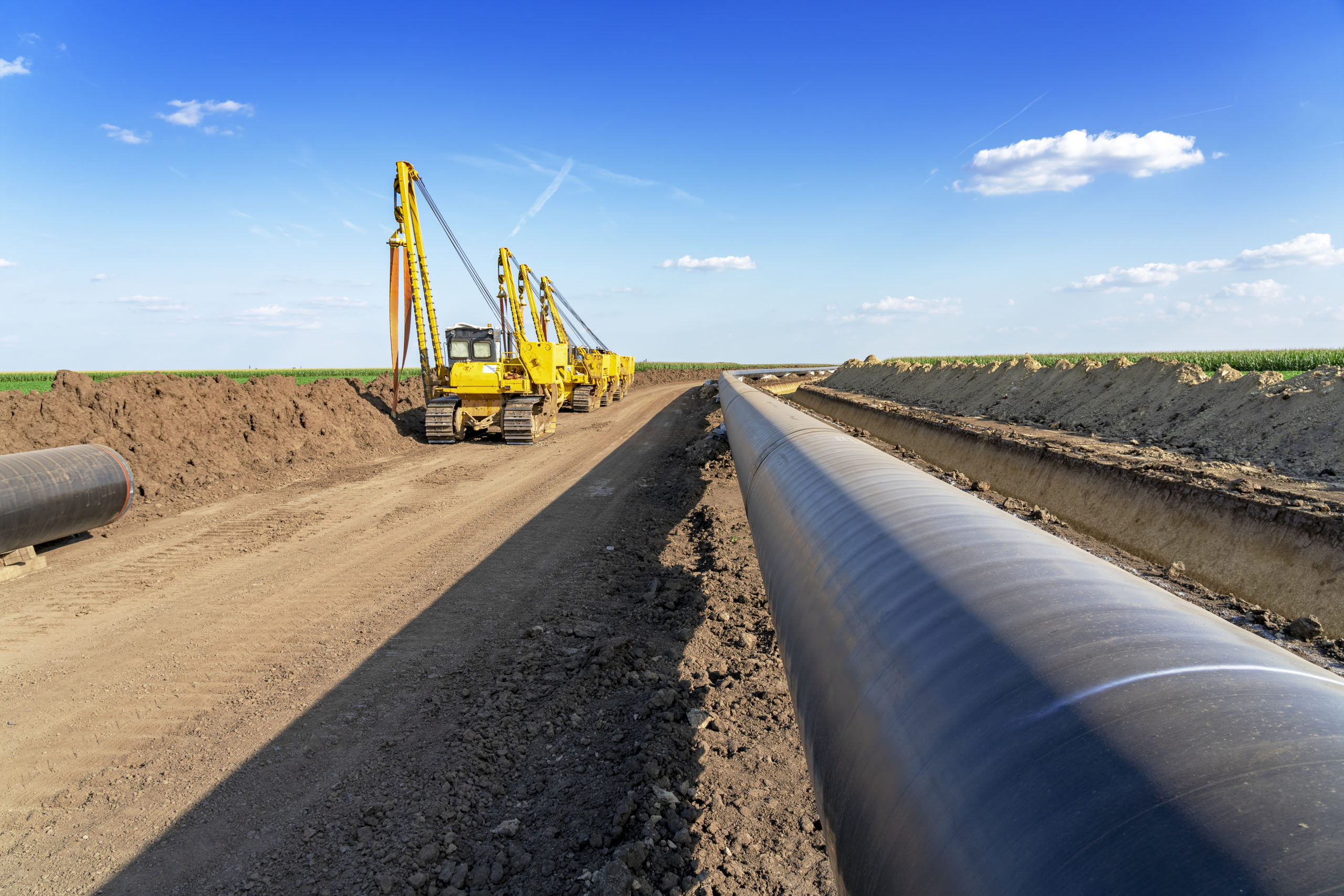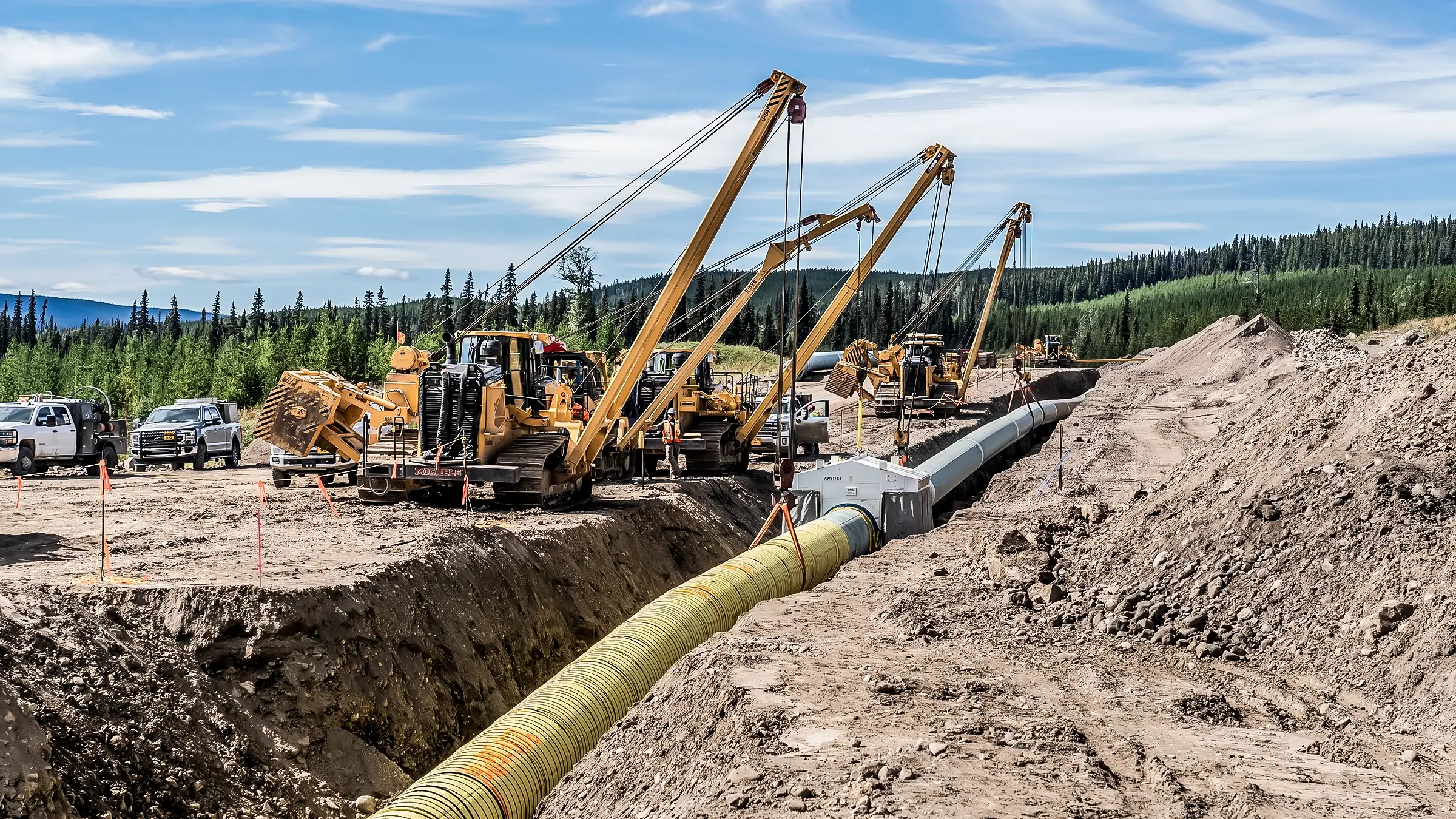A Comprehensive Guide to Recognizing Pipelines and Their Duty in Construction
Pipelines are vital elements in building, serving crucial functions in water, waste, and gas management. Their choice and application can considerably affect a building's performance and safety. Numerous materials, such as PVC, copper, and PEX, use distinct benefits fit to certain demands (Creek Pipe Company). Recognizing these variables is essential for any construction task. As one discovers the complexities of pipes, the implications for conformity and public health and wellness become progressively obvious
The Importance of Piping in Building and construction
Pipes offer as essential avenues in building and construction, assisting in the movement of water, gas, and waste throughout buildings and facilities. Their function prolongs beyond mere transport; they are crucial for ensuring the capability and security of business and domestic atmospheres. Effectively mounted pipelines add to the effective circulation of sources, enabling daily activities such as food preparation, heating, and bathing. In addition, pipelines play a critical function in waste monitoring, making sure that sewer and wastewater are effectively gotten rid of from living spaces.The importance of pipelines is likewise reflected in their influence on public health. Inadequate or faulty piping systems can lead to contamination and unsafe conditions, making quality products and installation practices critical. Furthermore, pipelines must abide with different building ordinance and laws, which are made to secure both occupants and the environment. Subsequently, the importance of pipes in construction includes both useful functionality and vital wellness factors to consider.
Types of Pipes Utilized in Structure Jobs
Various sorts of pipes play a substantial duty in structure tasks, each made to fulfill particular requirements and applications. Among one of the most generally used pipeline types are PVC, which is resistant and light-weight to corrosion, making it suitable for water drainage and vent systems. CPVC pipelines, comparable to PVC, can endure greater temperature levels, frequently made use of in hot water systems. Copper pipes are recognized for their durability and integrity, frequently used in pipes and heating applications. Galvanized steel pipes, while much less usual today, were as soon as a criterion for supply of water lines because of their stamina. Additionally, PEX (cross-linked polyethylene) pipes are acquiring appeal for property plumbing as a result of their adaptability and resistance to scaling and chlorine. Ultimately, cast iron pipelines are preferred for their sound-dampening residential or commercial properties, commonly made use of in waste and soil systems. Each pipe type serves unique features, ensuring reliable procedure in construction jobs.
Usual Products for Water Lines and Their Quality
In construction, the choice of pipeline materials is vital for making sure toughness and capability. Steel pipelines supply stamina and resistance to high pressures, while plastic pipes supply corrosion-resistant and lightweight alternatives. Compound pipes combine the benefits of both materials, making them versatile alternatives for numerous applications.
Metal Pipe Options
Steel pipelines are integral components in construction, providing a variety of choices that satisfy ecological conditions and various applications. The most usual products consist of steel, copper, and cast iron. Steel pipes are recognized for their strength and sturdiness, making them suitable for high-pressure applications. Copper pipes are favored for their rust resistance and antimicrobial properties, commonly made use of in pipes systems. Cast iron pipes offer excellent noise insulation and are perfect for waste and drain systems. Each steel type has distinct benefits; for instance, galvanized steel can stand up to corrosion, while stainless-steel uses superior rust resistance. Choosing the appropriate steel pipe relies on factors such as price, ecological exposure, and the details requirements of the construction job.

Plastic Pipeline Advantages
Plastic pipelines have gotten appeal in building and construction as a result of their lightweight nature and convenience. These pipes, made from products such as PVC, CPVC, and PE, offer excellent resistance to rust and chemical damage, making them ideal for various applications. Their ease of setup additional improves their charm, as they can be cut and signed up with without special tools. Additionally, plastic pipes are generally a lot more cost-effective contrasted to metal choices, adding to lower overall project costs. Their smooth interior surface areas minimize rubbing and boost flow rates, while insulation buildings assist preserve temperature level control in pipes systems - Creek Pipe Midland. With a variety of sizes and configurations readily available, plastic pipelines successfully satisfy the diverse needs of contemporary building and construction projects
Compound Pipeline Characteristics
Compound pipes integrate numerous products to take advantage of their private toughness, leading to enhanced efficiency and durability. Typically, these pipelines are composed of layers that may include plastics, porcelains, and steels, each contributing unique homes. The inner layer might be made of a corrosion-resistant material, while the outer layer gives toughness and impact resistance. This mix enables composite pipelines to endure extreme temperatures and stress, making them appropriate for a vast array of applications, consisting of water system and commercial processes. In addition, composite pipelines are commonly lighter than conventional materials, facilitating easier handling and installment. Their adaptability and adaptability to different atmospheres make them a preferred option in contemporary building projects, making certain durability and performance in fluid transport systems.
Applications of Pipes in Pipes Equipments

Electric Channels: The Function of Pipeline in Wiring
In modern building, electric channels play an essential duty in guaranteeing the safe and effective transmitting of electrical Bonuses wiring throughout structures. These pipes give a protective path for electric cords, safeguarding them from physical damage and environmental factors. Different materials, such as PVC, steel, and versatile avenues, are utilized depending on the certain demands of the installation.Furthermore, avenues help in organizing wiring systems, minimizing the danger of electric threats like short circuits or fires. They additionally help with less complicated upkeep and upgrades, as cords can be accessed and changed without substantial disruption to the structure.Proper installation of electrical channels is important for compliance with building ordinance and security laws. This organized technique not just improves the durability of the electric system however likewise adds to the overall safety and functionality of the building, making electrical conduits essential in modern construction methods.
Selecting the Right Pipe for Your Task
Just how can one ensure the ideal pipeline choice for a building project? The option procedure begins with comprehending the particular requirements of the task, including the kind of liquids being moved, stress ratings, and ecological conditions. Material alternatives, such as Steel, copper, and pvc, need to be examined based on sturdiness, deterioration resistance, and thermal properties.Next, one need to think about the pipeline's diameter and circulation capacity to identify effective procedure. Regulatory requirements and codes have to likewise be adhered to, as they dictate the acceptable materials and techniques for certain applications. Consulting with professionals and making use of comprehensive sources can better assist in making informed decisions.Finally, reviewing the cost-effectiveness of various alternatives is vital, stabilizing preliminary expenditures with long-lasting upkeep and substitute costs - Creek Pipe Midland. By carefully assessing these aspects, one can confidently choose the most ideal pipeline for their construction project, ensuring both functionality and compliance

Maintenance and Inspection of Piping in Building
Proper option of pipes sets the structure for their long-term efficiency, making maintenance and examination important elements in construction. Normal maintenance warranties that any kind of possible issues, such as leakages, rust, or clogs, are determined and dealt with quickly, decreasing expensive repairs and job hold-ups. Set up assessments, including aesthetic assessments and pressure examinations, play a crucial function in evaluating the stability of pipeline systems.Additionally, keeping track of ecological aspects, such as temperature level changes and soil problems, can aid anticipate damage. Utilizing innovative technologies, such as CCTV for indoor inspections, can improve the performance of upkeep efforts. It is crucial to record examination look these up findings and maintenance activities to develop a thorough history of the pipe systems. By focusing on upkeep and examination, building professionals can extend the life expectancy of their piping systems, guaranteeing they run successfully and reliably throughout the task's period.
Regularly Asked Questions
How Do Pipes Influence Energy Efficiency in Buildings?
Pipes considerably affect power efficiency in buildings by regulating heating and cooling systems. Correct insulation and materials decrease energy loss, while effective plumbing designs decrease water usage, ultimately leading to lower power intake and operational expenses.
What Laws Govern Pipe Installation in Construction?
Regulations regulating pipeline installment in building and construction commonly consist of nationwide and local structure codes, pipes codes, and security requirements. These assurance conformity with structural integrity, product requirements, and health and wellness demands, promoting security and efficiency in building and construction techniques.
Can Pipes Be Recycled After Usage?
The concern of pipe recyclability is considerable. Several products, such as steel and specific plastics, can be reused successfully. Nevertheless, the problem and type of pipeline influence reusing feasibility, requiring proper evaluation prior to disposal.
Exactly How Do Climate Condition Effect Pipeline Performance?
Weather condition problems significantly affect pipe performance. Extreme temperature levels can cause growth or tightening, while dampness may lead to rust. Furthermore, hefty rainfall can increase soil stress, influencing stability and overall performance of the piping system.
What Are the Indicators of Pipeline Failing to Look For?
Indications of pipeline failing consist of leakages, uncommon noises, discoloration of water, decreased water pressure, and noticeable deterioration. Normal inspections can help discover these problems early, protecting against pricey repairs and guaranteeing system capability in the long-term. Pipelines play a crucial duty in waste monitoring, making certain that sewer and wastewater are properly gotten rid of from living spaces.The importance of pipelines is additionally mirrored in their influence on public health and wellness. In building and construction, the option of pipeline materials is vital for guaranteeing toughness and performance. Metal pipes offer toughness and resistance to high pressures, while plastic pipelines offer corrosion-resistant and lightweight alternatives. In addition, pipelines are utilized to eliminate wastewater, connecting commodes, sinks, and drains pipes to local sewage systems or septic tanks.Different kinds of pipelines, such as PVC, copper, and PEX, are selected based on factors like resilience, price, and certain application demands. How can one assure the Related Site ideal pipe option for a building and construction job?